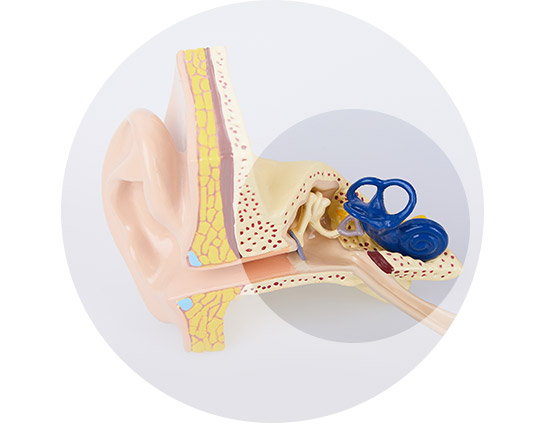What causes age-related hearing loss?
The main cause of age-related hearing loss is ageing.
It’s usually due to changes in your inner ear which happen as you get older. There are several factors that have an impact on developing age-related hearing loss, such as:
- Genes
- Certain medical conditions
- Side effects of certain drugs and medications
- Age
- Smoking
- Repeated exposure to loud noises
















